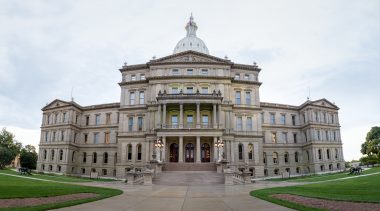Geoffrey Lawrence is the managing director of drug policy at Reason Foundation.
Lawrence is also currently the chief financial officer of Claybourne, Co., a licensed cannabis company.
Lawrence has broad experience as a financial executive in the public and private sectors and a decade as a think tank analyst. Lawrence was previously Chief Financial Officer and Chief Compliance Officer at Players Network, Inc, the first fully reporting, publicly-traded marijuana company to be listed on a U.S. exchange. Lawrence oversaw all aspects of compliance with state and local laws and regulations for the licensed cultivation operations across two states.
Prior to that, Lawrence served as the senior appointee to the Nevada State Controller’s Office., where he oversaw external financial reporting, covering nearly $10 billion in annual transactions, on behalf of the state. During each year of Lawrence’s tenure, the state received the Certificate of Achievement for Excellence in Financial Reporting Award from the Government Finance Officers’ Association.
Lawrence spent a decade developing market-based solutions to challenges facing state governments while working at the Nevada Policy Research Institute and, previously, the John Locke Foundation in North Carolina. Lawrence has also written for the Cato Institute and the Heritage Foundation, with particular expertise in state budgets and labor economics.
Lawrence holds an M.A. in international economics from American University in Washington, D.C., an M.S. and a B.S. in accounting from Western Governors University, and a B.A. in international relations from the University of North Carolina at Pembroke.
-
Illinois’ Legal Marijuana Shortage Will Continue Until Original Legislation Is Fixed
Since the state legislature chose to specify many details into statute rather than through rule-making, it will take additional legislative action to make the necessary corrections.
-
Detroit Continues to Drag Its Feet on Legalized Marijuana
The Detroit City Council should lean heavily on the already extensive regulation developed by state authorities and seek to pass a simple regulatory framework to license adult-use marijuana.
-
Marijuana Taxation and Black Market Crowd-Out
Tax rates that elevate the price of legal marijuana significantly above black market prices prolong the presence of illegal markets and reduce government tax receipts.
-
Gov. Newsom’s Much-Needed Call to Simplify California’s Marijuana Taxes and Regulations
Reducing the regulatory burden would be a big step in the right direction. Next up: lowering cannabis taxes.
-
LAO Report: California’s Taxes and Rules Mean Legal Marijuana Can’t Compete With Black Market Prices
"Even if the state eliminated its cannabis taxes entirely, other costs— such as regulatory compliance costs and local taxes—likely would keep legal cannabis prices higher than illicit market prices.”
-
Michigan Tries to Force Marijuana Businesses to Reach Labor Peace Agreements
There is a long series of legal precedents demonstrating that Gov. Whitmer’s proposed rule is unconstitutional.
-
PG&E’s Settlement Won’t Fix Its Problems and Consumers Deserve Choices
Routine power outages and rolling blackouts appear to be Californians’ new normal for at least another decade.
-
Nevada’s Pharmaceutical Disclosure Law Could Cause Drug Prices to Climb Even Higher
Nevada could be driving out smaller companies and reducing competition, which could lead to higher prices.
-
Michigan’s Marijuana Regulation Efforts Could Become a Model for Other States
Michigan was able to process and approve its first marijuana license application within 43 minutes.









